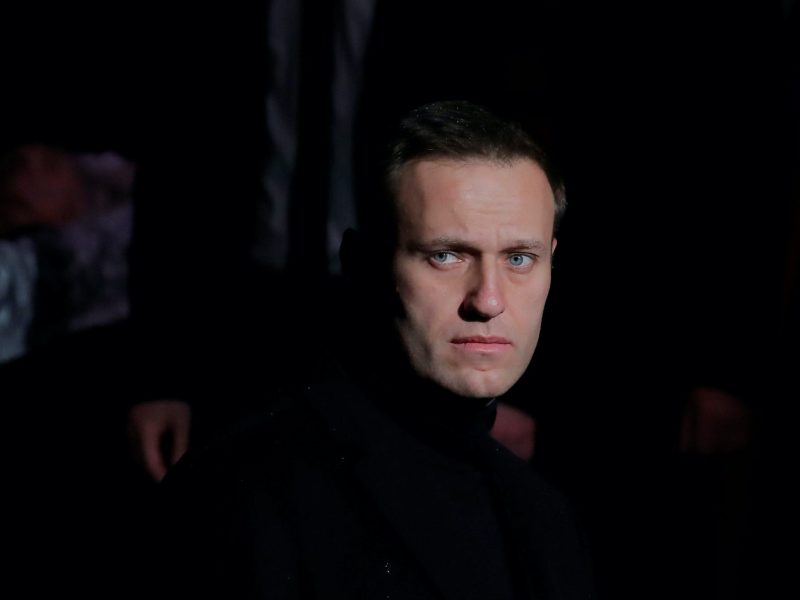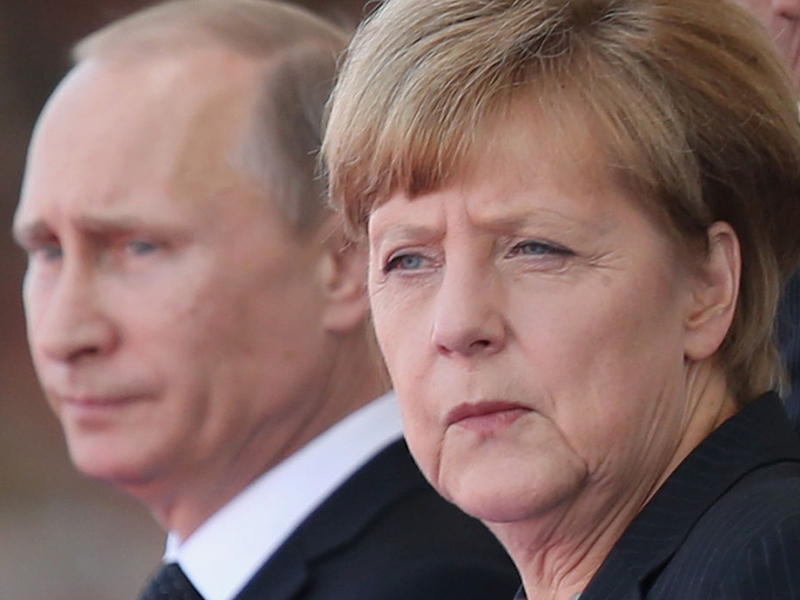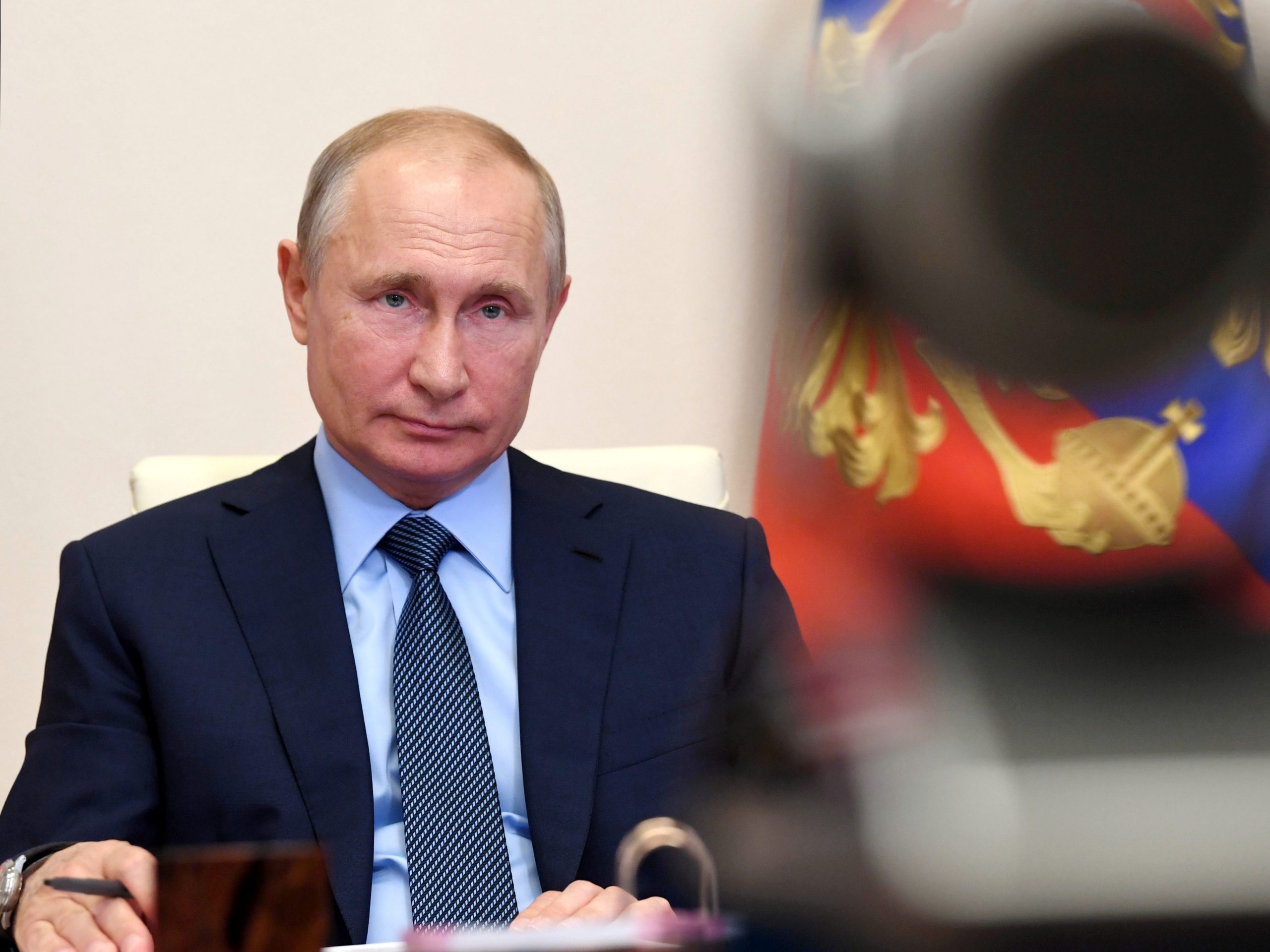Summary List Placement
Russian President Vladimir Putin continues to use the infamous Novichok nerve agent to poison his enemies precisely because the nerve agent can be linked to the Russian security services, according to two intelligence officials who have investigated Russian operations in the past.
German doctors on Wednesday accused Russian authorities of using the Russian-developed weapon to poison Alexei Navalny, a prominent Putin critic, during a trip to Siberia on August 20.
‘Vladimir Putin wants you dead’
Navalny fell into a coma and was taken to a Russian hospital, where doctors kept him from his personal doctor and from leaving the country for treatment for days.
Authorities eventually approved his transfer to Berlin. German doctors have since concluded that he was poisoned with Novichok, and is expected to survive but with possible long-term damage.
Though Novichok was developed in the then-Soviet Union in 1970s, the Russian state has used it in recent years. In 2018, two Russian assassins used the chemical in an attempt to kill defected former military intelligence (GRU) officer Sergei Skripal and his daughter in Salisbury in 2018.
Both Skripal and his daughter survived, but a British woman - Dawn Sturgess - died after unwittingly picking up a fake perfume bottle containing the nerve agent, which had been abandoned near the site of the Skripals' poisoning.
"Despite a surprisingly poor track record thus far, Novichok is an effective, deadly poison that has the added benefit of everyone knowing Vladimir Putin wants you dead," one NATO intelligence official told Insider.
The official declined to be named because they do not have permission to speak to the press, but their identity is known to Insider.
"In the case of Navalny, it is obvious that Putin wanted him dead in Siberia under mysterious circumstances," the official said. "But alive in Berlin with Novichok poisoning is almost as good: Navalny knows Putin wants him dead, was willing to use Novichok and didn't care that anyone would realize he was behind it."

The end of Navalny's campaign?
Another EU intelligence official, who closely monitors Russian activity, told Insider: "This, I think in Putin's eyes, ends Navalny's campaign against corruption in Russia."
This source also declined to be named because they do not have permission to speak to the press, but their identity is known to Insider.
"Putin spent years trying to find dirt on Navalny that could be used to make him a collaborator in the system but when he realized he was clean and wasn't going to stop ... well, now it's time to kill him. But in Berlin unable to return to Moscow? This is the same effect."
"If he's not fighting Putin on corruption inside Russia then he's not fighting him at all," the source added. "There's never been a successful Russian campaigner who operated from outside Russia, maybe it's just too big. I doubt Putin would try to kill him in Europe now because he's annoying but harmless."
'I fear he can kill all the Russians he wants'
European leaders from German Chancellor Angela Merkel to UK Prime Minister Boris Johnson have released various statements of outrage and demands for further information.
But in the case of the UK - where the Skripals were poisoned in 2018 - and Germany - which saw a Russian government employee assassinate a Chechen dissident in central Berlin last August - there seems to be little sign that either is willing to take steps that would target Putin and stop his aggressive behavior.

"The Germans and Brits could put an end to much of this behavior by Putin," said the central European source.
"Forcing biometrics for diplomatic visas to further limit hit teams using false passports, seizing bank accounts and assets of Putin insiders in London, really threatening gas and oil infrastructure projects ... But all of these wouldn't just cause pain for Putin, they'd cause pain for lawyers, brokers and bankers in London and oil and gas executives around the world."
"Putin is confident he can take more pain than they can," the official said. "Until that changes I fear he can kill all the Russians he wants."
- Read more:
- Germany says top Putin opponent Alexei Navalny was poisoned with Novichok nerve agent
- Biden condemns 'Russian state' for poisoning of Alexei Navalny, says Trump's 'silence is complicity'
- Putin's love of poison - a messy and uncertain weapon for assassins - reflects his need for proven uncertainty
- How Ukraine's audacious secret service successfully scammed Putin and his mercenaries
